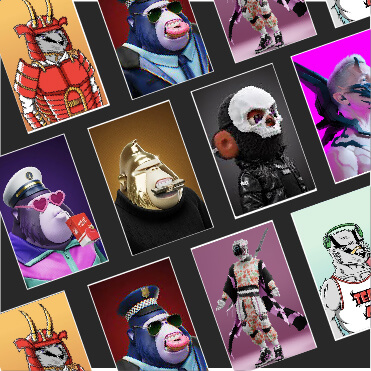A court in China’s Hangzhou city has said NFT collections are virtual assets that should be protected by Chinese law. The Hangzhou Internet Court in east China’s Zhejiang province has ruled on an NFT collection-related lawsuit, which accepted NFT collections to be virtual assets and made judgement according to relevant law.
The court noted the ambiguity in the language applied to NFT since last year, when China imposed a crackdown on crypto currencies, following which NFT are within gray areas of Chinese regulations. The case in the Hangzhou Internet Court demanded confirmation of the legal attributes of NFT.
The court said that NFT collections exhibit multiple characteristics including being valuable, rare, discretionary and tradeable, as well as have features belonging to virtual assets. Besides, the trade of NFT collections should be protected by law, if the trade contract does not violate current laws.
The court’s mandate came into the picture when a user of a technology platform accused the latter of not allowing him to complete the sale and cancelled his NFT purchase from a flash sale, on the basis that his name and phone number did not match with those in their records.
According to the court, an NFT platform put an NFT product on sale in February with a detailed purchasing notice listing the price, purchasing times and the number of products available. The notice also stated that consumers must input verified personal phone number and ID number, or the order would be refunded.
A user of the platform sued the platform citing infringement of rights because an NFT collection priced at 999 Yuan was refunded after he placed the order, and requested the platform to execute the trade contract or compensate him with 99,999 Yuan. The platform said they cancelled the order because the user filled in an incorrect personal phone number.
The Hangzhou Internet Court dismissed the user’s claim because the trade contract of the NFT collection was compliant and the personal information provided by the user when purchasing the product did not meet the platform’s requirements.
The court said that the NFT collection is a kind of virtual art work, generated by an artist’s unique expression with intellectual property value attached and should be identified as virtual assets.
The court further stated that NFT digital collections belong to the category of online virtual property, and therefore warrants legal protection. Hence, the above-mentioned transaction would be treated as an e-commerce business and regulated by the E-commerce law in China.
China made global headlines when it banned crypto currencies last year. With crypto mining and trading being restricted within its shores, China has worked to separate NFT from crypto with a government-backed blockchain project to support the deployment of non-crypto NFT that are paid for using fiat currencies, when it rolled out its first set of crypto restrictions.
The Chinese government is still vigilant to ensure its population resists “NFT speculation” as described in a joint statement in April issued by the China Banking Association, the China Internet Finance Association and the Securities Association of China that warned the public about the “hidden risks” of investing in NFT.



